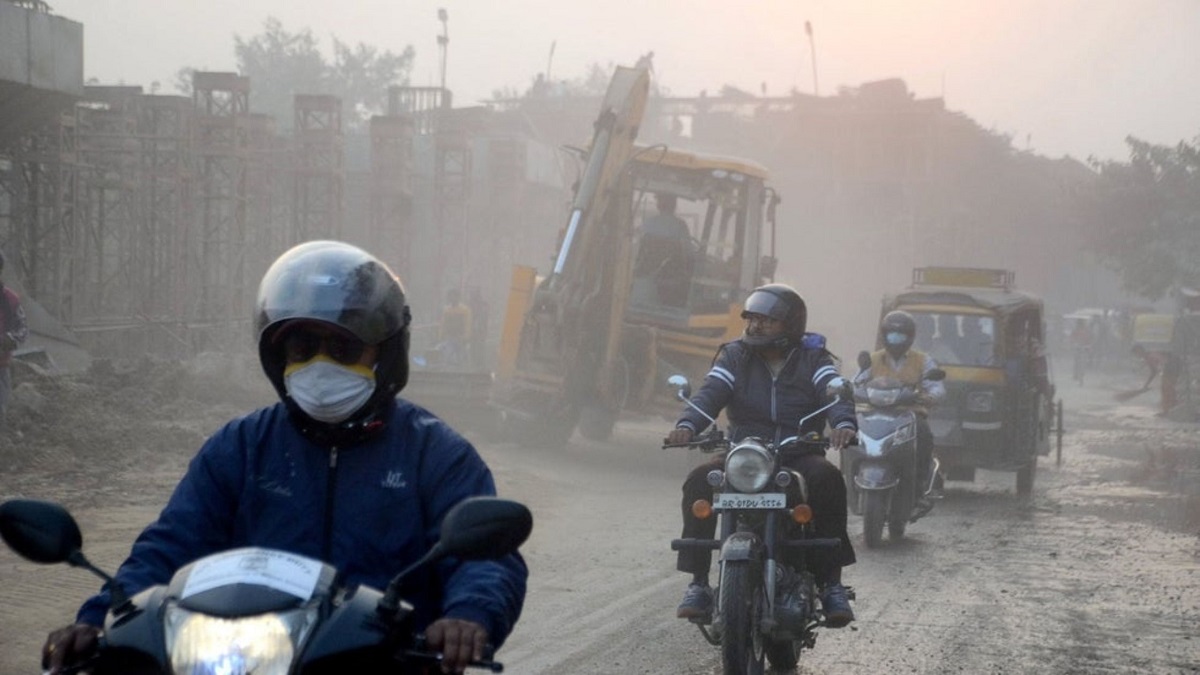Pune : Pinpointing Pollution in Pune-PCMC : A climate-tech startup has unveiled a report identifying significant pollution hotspots in Pune and Pimpri-Chinchwad, with PM2.5 levels in some areas far surpassing national safety standards.
The findings, derived from Google Maps Air Quality API, Google Air View+, and the AtlasAQ platform, provide high-resolution insights into air quality trends.
India vs Australia 2nd Test : Starc Strikes Early, Australia Dominates Day 1
PM2.5—particulate matter smaller than 2.5 microns—is a critical air pollutant linked to respiratory and cardiovascular illnesses, posing a severe risk to public health.
“The report aims to highlight pollution patterns across ten major Indian cities using hyperlocal monitoring techniques during November 1-30 this year,” explained Ronak Sutaria, founder and CEO of Respirer Living Sciences.
Offering air quality data at a 500×500 meter resolution, the report leverages advanced technologies to uncover actionable pollution trends. These insights are intended to guide policymakers, urban planners, and citizens, Sutaria noted.
Vehicular traffic, urban construction, and rapid industrialization emerged as key contributors to pollution in Pune and Pimpri-Chinchwad. Critical zones in Pune, such as Revenue Colony (Shivajinagar), Hadapsar, and Transport Nagar-Nigdi, recorded PM2.5 levels between 60-100 µg/m³. In Pimpri-Chinchwad, Thergaon, Savta Mali Nagar, and Gavalinagar faced even higher levels, exceeding 115 µg/m³. (Pinpointing Pollution in Pune-PCMC)
Professor Sachchida Nand Tripathi, Chair of the Steering Committee for the National Clean Air Programme (NCAP), emphasized the importance of hyperlocal air quality monitoring. “This approach bridges the gap between broad-scale assessments and local realities, providing precise, real-time data to identify pollution sources and design targeted interventions for better public health outcomes,” he explained.
Allu Arjun की ‘Pushpa 2’ की स्क्रीनिंग में भगदड़, महिला के साथ हुआ ‘यह’ हादसा
Shekhar Singh, Commissioner of the Pimpri-Chinchwad Municipal Corporation, stressed the need for coordinated efforts among civic administrations, the PMRDA, and other agencies to combat air pollution. “We’ve urged the district collector and Maharashtra Pollution Control Board to halt approvals for new Ready Mix Concrete (RMC) plants and brick kilns, as dust from these sources impacts nearby areas. Measures under the Graded Response Action Plan (GRAP) are already underway, and PCMC operates 35 air quality analyzers as part of its monitoring efforts,” Singh stated.


